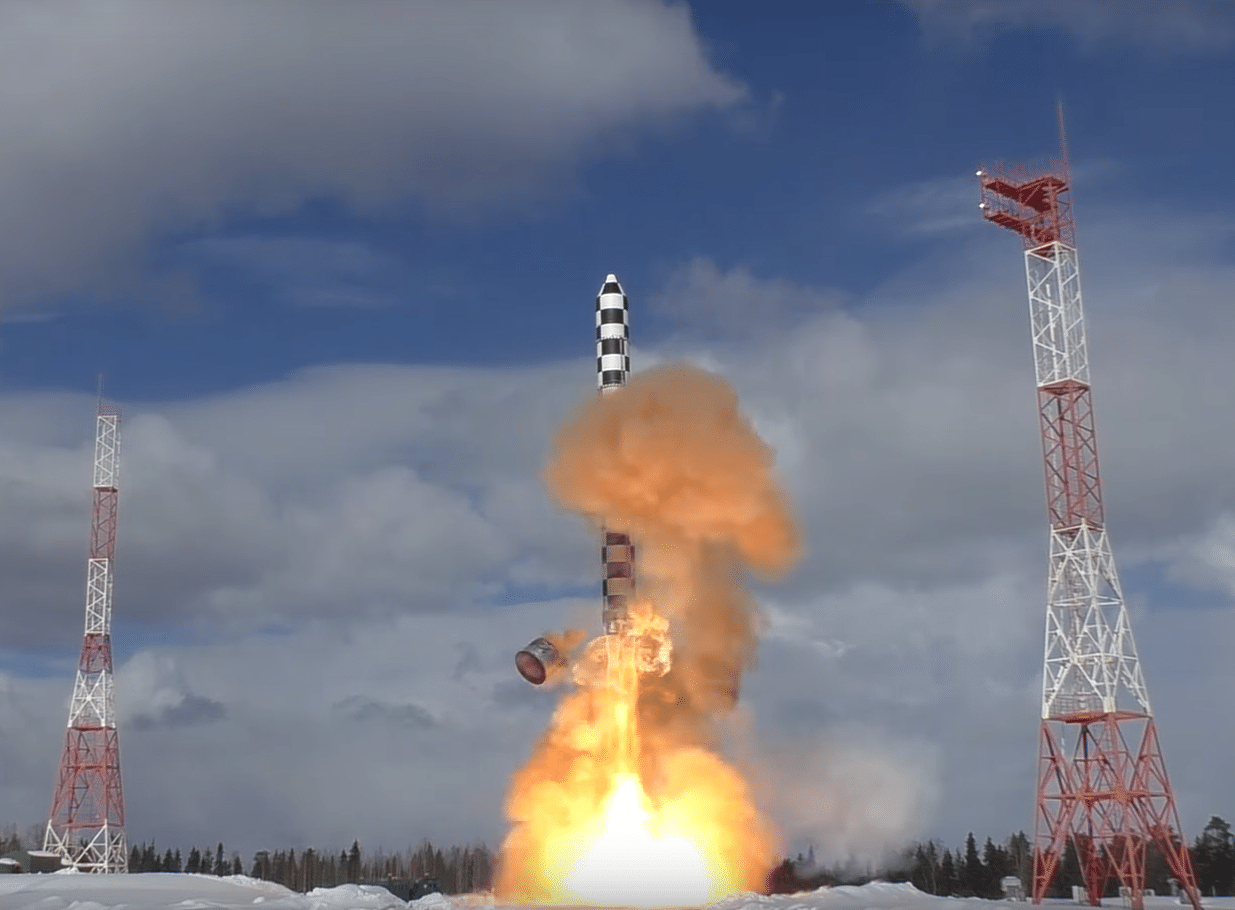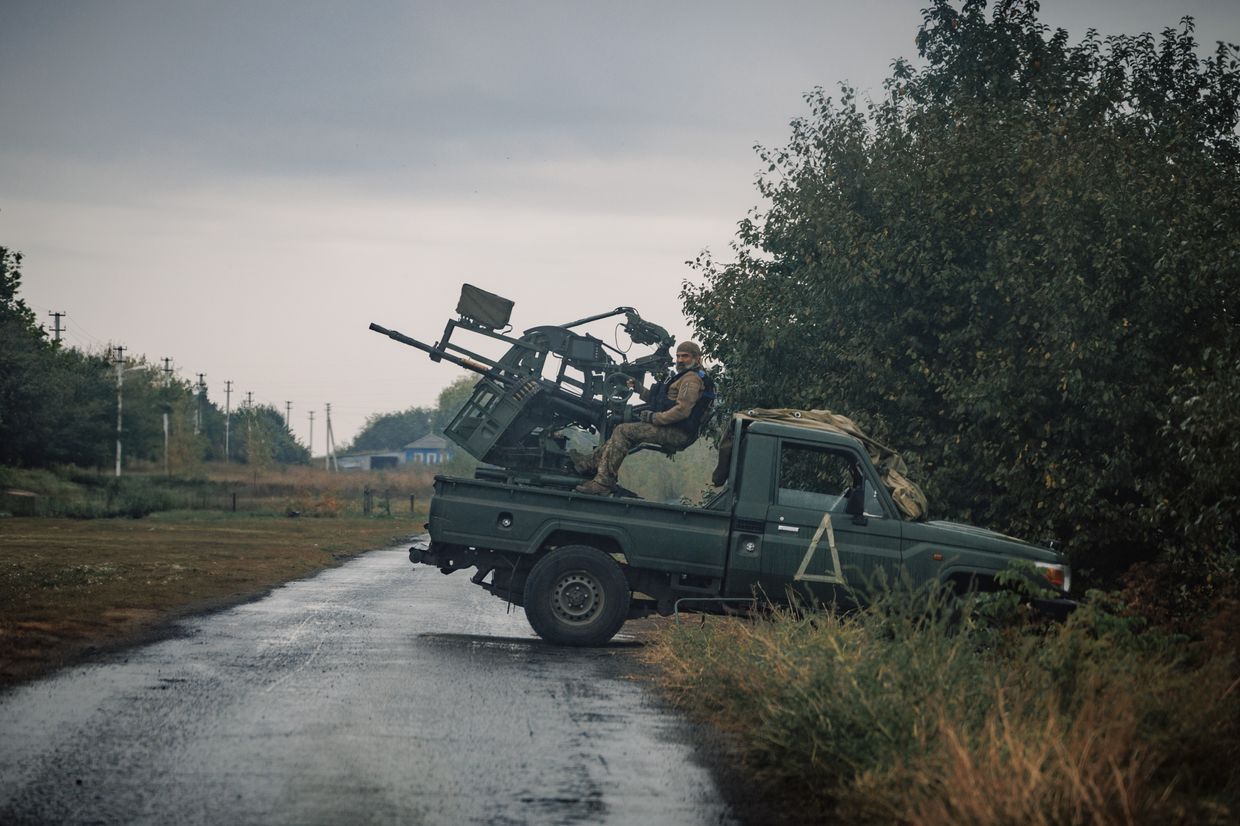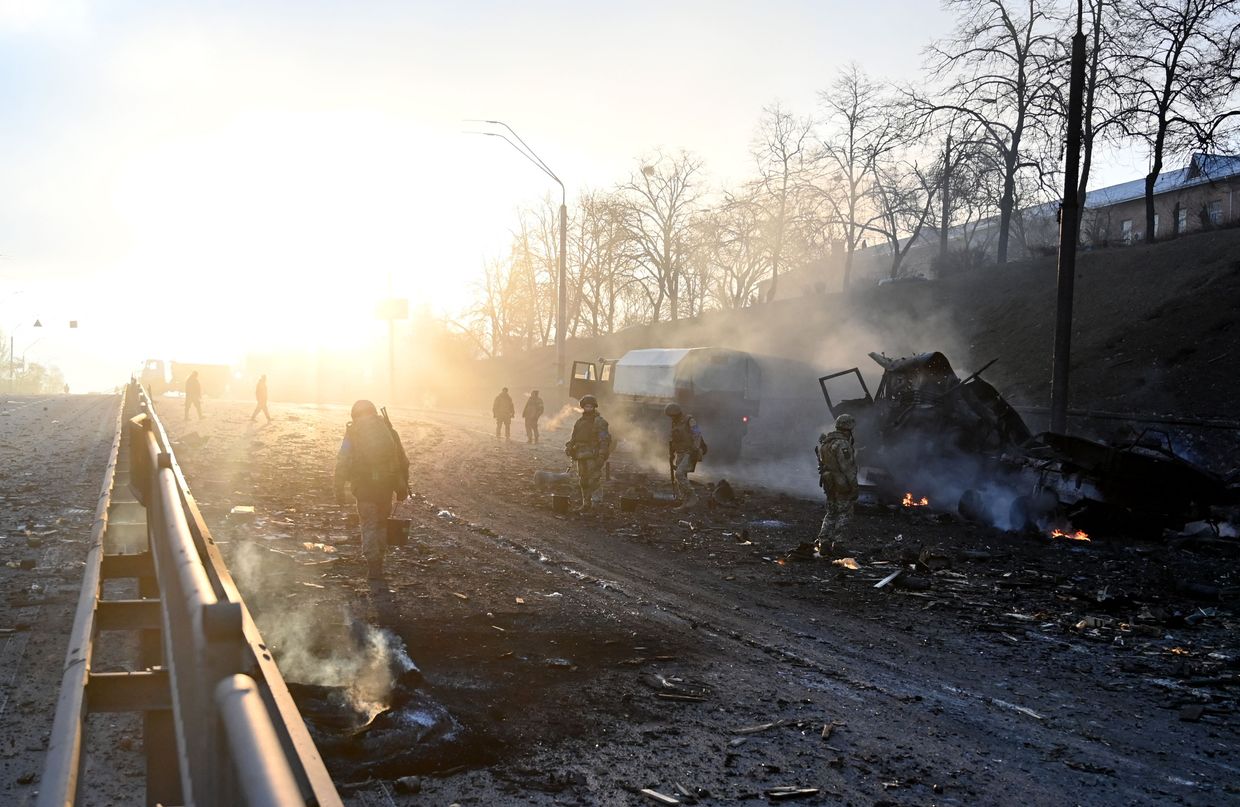Ukraine war latest: Ukraine reportedly uses ATACMS on Russian territory for first time; Zelensky presents resilience plan

Key developments on Nov. 19:
- Ukraine used ATACMS on Russian territory for first time, according to Moscow, media
- Russia claims to capture village near Kurakhove, Kyiv hasn't confirmed
- Putin approves Russia's updated nuclear doctrine
- Over 50,000 Ukrainian recruits have received training in UK
- Denmark to provide over $137 million for Ukrainian defense industry
- Zelensky presents resilience plan: 'Ukraine may need to outlive someone in Moscow to achieve all the goals'
The Russian Defense Ministry claimed on Nov. 19 that Ukraine launched U.S.-made ATACMS missiles against Russia's Bryansk Oblast, according to the state news agency TASS.
This coincides with several Ukrainian media outlets reporting that, according to undisclosed military sources, Ukraine successfully struck a Russian military facility in Karachev, Bryansk Oblast.
If confirmed, this would mark the first instance of Ukraine using U.S.-made long-range missiles on Russian territory since Washington eased the restrictions last week. Kyiv's forces have previously deployed the weaponry only against Russian targets in occupied Ukrainian territories.
The claims could not be independently verified. A Ukrainian military representative declined to comment on the reports for the Kyiv Independent.
Ukrainian officials previously reported an attack with unspecified weaponry against a Russian arsenal in Karachev overnight on Nov. 19, which reportedly stored artillery ammunition, including North Korean munitions, KAB guided bombs, anti-aircraft missiles, and rocket launcher ammunition.
Twelve secondary explosions could be heard at around 2:30 a.m., the General Staff of Ukraine's Armed Forces reported.
Karachev residents reported explosions and detonations, including an alleged attack on a "military base," as shared in local chats and reported by Russian media outlet Astra. The town lies more than 100 kilometers (60 miles) from the Ukrainian border.
ATACMS missiles have a maximum range of 300 kilometers (190 miles).
In turn, the Russian Defense Ministry claimed that its forces shot down five and damaged one ATACMS missile. Missile fragments fell on a military facility in Bryansk Oblast and started a fire but inflicted "no casualties or damage," the ministry claimed.
Unnamed U.S. officials, as well as a source familiar with the decision, who spoke to Reuters following the decision earlier this week, said that Kyiv plans to conduct its first long-range strikes in the coming days.
Commenting on the reports, President Volodymyr Zelensky said that the "missiles will speak for themselves."

Zelensky presents resilience plan: 'Ukraine may need to outlive someone in Moscow to achieve all the goals'
President Volodymyr Zelensky unveiled Ukraine's 10-point plan for internal resilience in an address to the parliament on Nov. 19.
"Ukraine may need to outlive someone in Moscow to achieve all the goals," Zelensky said, according to lawmaker Yaroslav Zhelezniak's Telegram channel. "We do not trade security or sovereignty. We will not give up our rights to our entire territory."
The resilience plan follows some criticism Zelensky received after presenting a victory plan this fall that primarily focused on requests from external partners and lacked domestic reforms.
"While the whole world is waiting for a miracle from Trump, God willing, we should get to work," Zelensky said.
"Ukraine may need to outlive someone in Moscow to achieve all the goals," Zelensky said.
The individual points of the new resilience plan were focused on the country's unity, front-line situation, arms, finances, energy, security, communities, human capital, cultural sovereignty, and veterans, according to Zhelezniak's Telegram channel.
In his presentation to parliament, Zelensky emphasized he is not preparing to lower the mobilization age. Instead, he called for new approaches to management, establishing a military ombudsman, and creating a new contract system for citizens below the age of mobilization. With Ukraine facing sharp manpower shortages, Zelensky has come under pressure both from citizens at home and from U.S. lawmakers abroad to reduce the age of mobilization.
Zelensky also said that Ukraine will produce at least 30,000 long-range drones next year, and noted that Ukraine has already struck targets using their domestically-produced Neptune cruise missiles. In his speech, he set a goal of producing 3,000 cruise missiles.
For veterans, Zelensky proposed new efforts to recruit veterans for public service, creating rehabilitation centers in every community in 2025, introducing 11,000 veteran support specialists in the next year, providing supplementary payments to family physicians treating veterans, and establishing dedicated veteran housing.
Financial aspects of the plan included deregulation, insuring military risks, and increased security for businesses from law enforcement pressures.
Zelensky also proposed a cultural "Ramstein" to reinforce and export Ukraine culture abroad, including helping to establish Ukrainian studies departments in foreign universities.
In regards to unity, Zelensky reportedly restated that the country will not hold any elections until martial law is lifted, and said that further aspects of the plan will be developed in detail in coordination with civil society members, business leaders, and experts.

Russia claims to capture village near Kurakhove, Kyiv hasn't confirmed
Russian forces claim to have taken the front-line village of Novoselydivka in Donetsk Oblast on Nov. 19.
Ukraine has not commented on the claims, which could not be independently verified.
Novoselydivka lies some 7 kilometers (4 miles) north of Kurakhove, an important stronghold of Ukrainian forces in the area that has seen increasingly heavy Russian assaults in the past months.
If confirmed, this will be the latest village that the Russian forces took in their attempt to encircle Kurakhove by driving their forces towards Konstiantynopil with a north-south pincer movement.
With the best Ukrainian brigades holding Russia's Kursk Oblast, Russian troops move forward along the Donetsk front line at a rate not seen since the early weeks of the war.
The victory of U.S. President-elect Donald Trump in early November adds further uncertainty to Kyiv's military prospects to hold its defenses across the 1,200-kilometer-long (750 miles) front line as doubt over Washington's future military aid looms.
Outgoing President Joe Biden's decision to allow Ukraine to use Western-supplied ATACMS to strike targets deep inside Russia may help in the short run but will not change the general course of the war, observers said.
Putin approves Russia's updated nuclear doctrine
Russian President Vladimir Putin approved updated principles of Russia's nuclear deterrence policy, according to a presidential decree published on a government website on Nov. 19.
The revised doctrine outlines scenarios that could justify a nuclear strike. It implies that this could include "aggression against the Russian Federation and its allies by a non-nuclear state with the support of a nuclear state" and large-scale non-nuclear attacks, such as those carried out with drones.
Putin first proposed changes to the nuclear doctrine during a Sept. 25 Security Council meeting on nuclear deterrence. He claimed that Russia does not need a preventative strike as part of its nuclear doctrine "because, in a retaliatory strike, the enemy will be guaranteed to be destroyed."
Kremlin spokesperson Dmitry Peskov said the changes should be seen as a "certain signal" to the West.
"This is a signal that warns these countries of the consequences if they take part in an attack on our country by various means, not necessarily nuclear," Peskov told the state-run RIA Novosti on Sept. 26.
Since launching its full-scale invasion of Ukraine in February 2022, Russia has repeatedly issued nuclear threats against Ukraine and the West.
The threats have failed to materialize, and Russia continues to wage its all-out war without using its nuclear arsenal.
Over 50,000 Ukrainian recruits have received training in UK
More than 50,000 Ukrainian recruits have undergone training in the U.K. as part of the British-led Operation Interflex since June 2022, the U.K. Defense Ministry announced on Nov. 19.
"Kosovo, Romania, and Estonia are the latest nations to join this global effort, standing united for freedom and resilience," the Defense Ministry said on X.
The project, also supported by 10 other partner countries, including Canada, New Zealand, Norway, Denmark, Finland, Sweden, Lithuania, the Netherlands, and Australia, provides essential military training to Ukrainian recruits at various facilities.
Operation Interflex, led by the U.K., is one of the key programs aimed at preparing Ukrainian troops to defend against Russian aggression.
Ukrainian service members have also been receiving military training under other initiatives led either by national governments of partner countries or the EU.
British soldiers have been warned that Russia may be using spies and drones to gather intelligence on Ukrainian service members trained in the U.K., according to a report by The Times on Aug. 5.
Denmark to provide over $137 million for Ukrainian defense industry
Denmark will allocate 130 million euros ($137.5 million) for the development of the Ukrainian defense industry, Danish Prime Minister Mette Frederiksen announced on Nov. 19 during a joint press briefing with Ukrainian President Volodymyr Zelensky.
Frederiksen came to Kyiv on Nov. 19 in a surprise visit and met Zelensky on the 1,000th day of Russia's full-scale invasion of Ukraine.
"It is important to me that our own industry, not only in Denmark but in all neighboring countries, can visit Ukraine and learn from your experience and your ability to expand and develop your production lines," Frederiksen said.
Denmark became the first country to offer to donate arms to Ukraine via direct purchases from the Ukrainian defense industry, as Kyiv's defense budget does not match the capacities of domestic weapons production.
According to the president, the Ukrainian defense industry has already attracted over $1 billion in line with this financing model from partners, including Norway, which recently joined.
Zelensky added that Ukraine should open the defense industry to full cooperation with partners.
Denmark, one of Kyiv's key supporters throughout Russia's full-scale invasion, announced on Oct. 18 a new 2.4 billion kroner ($350 million) military aid package for Ukraine.
This was Denmark's 21st military aid package since the beginning of Russia's full-scale invasion of Ukraine. Copenhagen previously provided Ukraine with a military aid package worth around $115 million in August.














